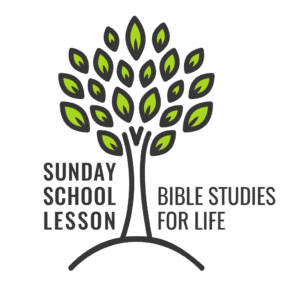Focal Passage: Exodus 18:9-11, 14-21
 A burning bush, a split sea, broken tablets before an idol of gold. When one considers the life of Moses it is likely that one of these iconic biblical scenes comes to mind. Moses is one of the most well-known people in the entire Bible and the key figure in some of the most dynamic and important parts of the Old Testament.
A burning bush, a split sea, broken tablets before an idol of gold. When one considers the life of Moses it is likely that one of these iconic biblical scenes comes to mind. Moses is one of the most well-known people in the entire Bible and the key figure in some of the most dynamic and important parts of the Old Testament.
One of the more inconspicuous, yet essential characters in the Exodus narrative is Jethro, Moses’ father-in-law. The passages we are considering cover two conversations between Jethro and his son-in-law. Let’s explore these passages and notice helpful principles for our relationships today.
The first kind of relationships that many Christ-followers struggle with involves friends or family members that are unbelievers. Many Christians find it easier to be evangelistic with complete strangers.
Jethro was the “priest of Midian” (Exodus 2:16). There is some disagreement as to whether his priesthood was related to the one true God or whether he was a priest in some other pagan religious system. It seems as if Jethro’s eventual response to Moses’ testimony lends itself to the latter (Exodus 18:11). Either way Moses’ testimony is the focus.
Moses shared the complete story of redemption. Moses did not leave any part of the exodus experience out. He told the story of hardship and deliverance. (Exodus 18:8). To highlight the power of God in us through Christ we must also tell the whole story.
Our story should include hardship and deliverance. We can tend to lean toward extremes on either side. Too much emphasis on hardship can come across as complaining. On the other had if we only focus on the deliverance and leave out the difficulty, we can give the wrong impression of what following Christ is all about. People are attracted to authenticity.
Moses puts on display this key aspect of faithful evangelism to the people that we know best … tell them the whole story of redemption. There is no greater display of the power of God than the forgiveness and redemption of a sinner.
The second kind of relationship that this passage helps with is when a Christian desires to help a fellow believer that is struggling with a personal shortcoming. Moses was taking upon himself the task of judging the entire nation and was at risk of burning out (Exodus 18:13). Jethro saw the problem and stepped in with some help. Moses was open to receive his counsel. How can we have this same openness?
A brief recall of Moses’ commission from God might provide insight. When God called Moses to be His messenger to Pharoah, Moses was ready with excuses including his lack of eloquence (Exodus 4:10). Moses was aware of his shortcomings.
Before the exodus Moses had an unhealthy view of his personal challenges. After experiencing the power of God through the Exodus there is little doubt that Moses viewed his shortcomings differently. In light of the personal power of God we can view our challenges as opportunities to grow through and toward Christlikeness.
The Word of God is clear that there is exceeding value in the counsel of others (Proverbs 15:22). We can remain open to good and godly counselors when we view our shortcomings as opportunities instead of obstacles. B&R

